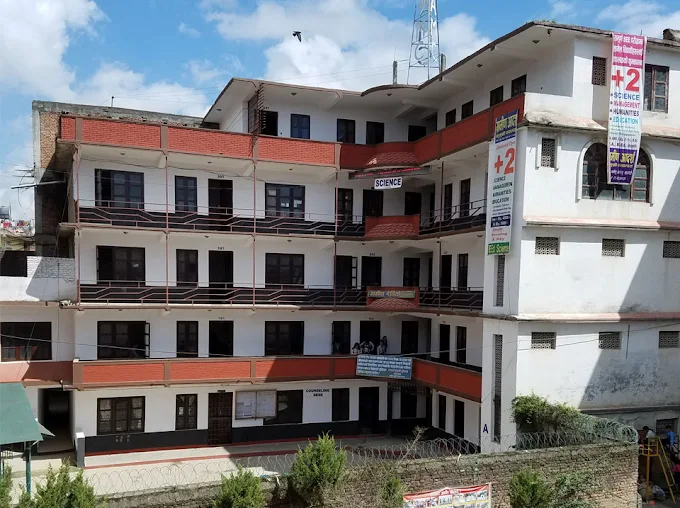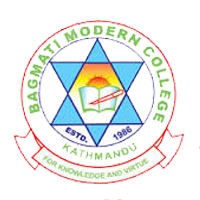Overview
Bachelor of Business Studies (BBS) — Gramin Adarsha Multiple Campus, Nepaltar–Balaju, Kathmandu
Bachelor of Business Studies (BBS) at Gramin Adarsha Multiple Campus (GAMC), Nepaltar–Balaju, Kathmandu, runs under Tribhuvan University, Faculty of Management. Students seeking a TU BBS in Kathmandu find a community campus setting, steady academic supervision, and access to practice-focused tasks that reflect Nepal’s business context.
The four-year structure follows TU’s assessment standards and prioritizes steady progress across accounting, finance, marketing, and organizational studies. Your goal is clear here—gain practical business knowledge that stands up to university evaluations and workplace expectations.

Highlights
BBS at GAMC follows a four-year academic plan under TU guidelines. Annual board examinations measure subject mastery, while internal tasks guide day-to-day learning.
The campus offers manageable class sizes, accounting practice support, and ICT access for spreadsheet work and report preparation. Students receive advising for subject selection, exam strategy, and basic workplace readiness.
Curriculum Details
The program covers Accounting, Business Finance, Marketing, Business Economics, Business Law, Taxation, Organizational Behavior, and Entrepreneurship. Accounting papers move from principles to financial statements, cost/managerial topics, and analysis.
Finance introduces time value of money, working capital, capital budgeting, and capital markets in Nepal. Marketing addresses consumer behavior, market research basics, and channel decisions.
Business Economics builds micro and macro foundations that explain firm behavior and national indicators. Law and Taxation relate classroom theory to statutory compliance, VAT and income tax topics, and basic procedures used in Nepali firms. Organizational Behavior connects motivation, leadership, and teamwork to daily coordination in offices and SMEs.
Objectives
The course helps students understand core business functions, read financial information with care, and apply reasoning to common managerial questions. Students build comfort with business communication, documentation, and presentations. Ethical awareness, record-keeping discipline, and familiarity with Nepali laws that affect commerce stay central across papers.
Scope
Graduates enter roles in accounts, audit support, sales coordination, banking front-line support, and operations in SMEs. Many students use BBS to prepare for public service examinations, professional certifications, or entry to master’s studies such as MBS or MBA. Kathmandu-based work settings—trading, retail chains, cooperatives, and service firms—frequently host early internships and junior roles.
Learning Outcomes
Students learn to prepare and interpret basic financial statements, apply costing ideas to pricing and control, read budgets and variance notes, and draft simple tax computations under Nepali rules. Students conduct short marketing studies, present findings, and create concise memos for supervisors. Team assignments build coordination, time management, and documentation skills that matter during audits or year-end closures.
Skill Development Modules
GAMC supports practice through accounting labs and spreadsheet tasks that mirror day-to-day office work. Case discussions use Nepali SME scenarios such as inventory control, cash discounts, or credit policy. Short tax calculation drills and voucher documentation help students link law content to entries and ledgers. Mini-projects encourage vendor comparison, break-even checks, and simple market surveys in nearby wards.
Teaching Methodology
Teaching combines lectures, guided tutorials, practice sets, class tests, and presentations. Internal assessment tracks attendance, short quizzes, assignments, and report writing. Annual TU examinations evaluate subject mastery. Students receive exam-oriented reviews close to board dates, while earlier months favor regular practice and incremental improvement.
Admission Requirements
Entry requires completion of Ten Plus Two or equivalent with the minimum grade set by Tribhuvan University, Faculty of Management. Subject-wise prerequisites and documentary requirements follow TU notices for each session. The campus admission desk publishes intake timelines, seat information, and orientation dates during the admission cycle.
Career Opportunities
Graduates start as accounts assistants, junior finance staff, tax support staff, sales/marketing associates, operations coordinators, and office administrators. Banks and financial institutions consider BBS graduates for entry support roles subject to vacancies and exams. Many students pursue MBS/MBA, professional courses, or competitive examinations to widen career paths.
Scholarships and Financial Aid
GAMC operates merit and need-based support under campus policy. Students submit academic records and relevant documents for consideration. Scholarship information appears on campus notices each intake.
Why Choose This Course?
Students who prefer structured accounting practice, steady progression in finance and economics, and clear assessment checkpoints find BBS a suitable path. The community campus context supports affordability and access. The Nepaltar–Balaju location eases commuting for students from multiple parts of the Valley.
Conclusion
BBS at GAMC offers a grounded route into commerce and management under TU standards. The mix of accounting drills, finance basics, and communication practice supports entry into the workplace and further study. Students who manage their time and maintain steady practice see consistent progress through the four academic years.
FAQ
1) Is BBS at GAMC under Tribhuvan University?
Yes. The program runs under TU, Faculty of Management.
2) How long is the program?
Four academic years under TU’s evaluation structure.
3) How are students assessed?
Internal tasks throughout the year and annual TU board examinations.
4) What subjects form the core?
Accounting, Finance, Marketing, Economics, Law, Taxation, Organizational Behavior, and Entrepreneurship.
5) What are common entry-level roles after graduation?
Accounts assistant, finance support, sales/marketing associate, banking front-line support, and SME operations roles.
6) Does the campus provide scholarships?
Merit and need-based support run under campus policy and published notices.























